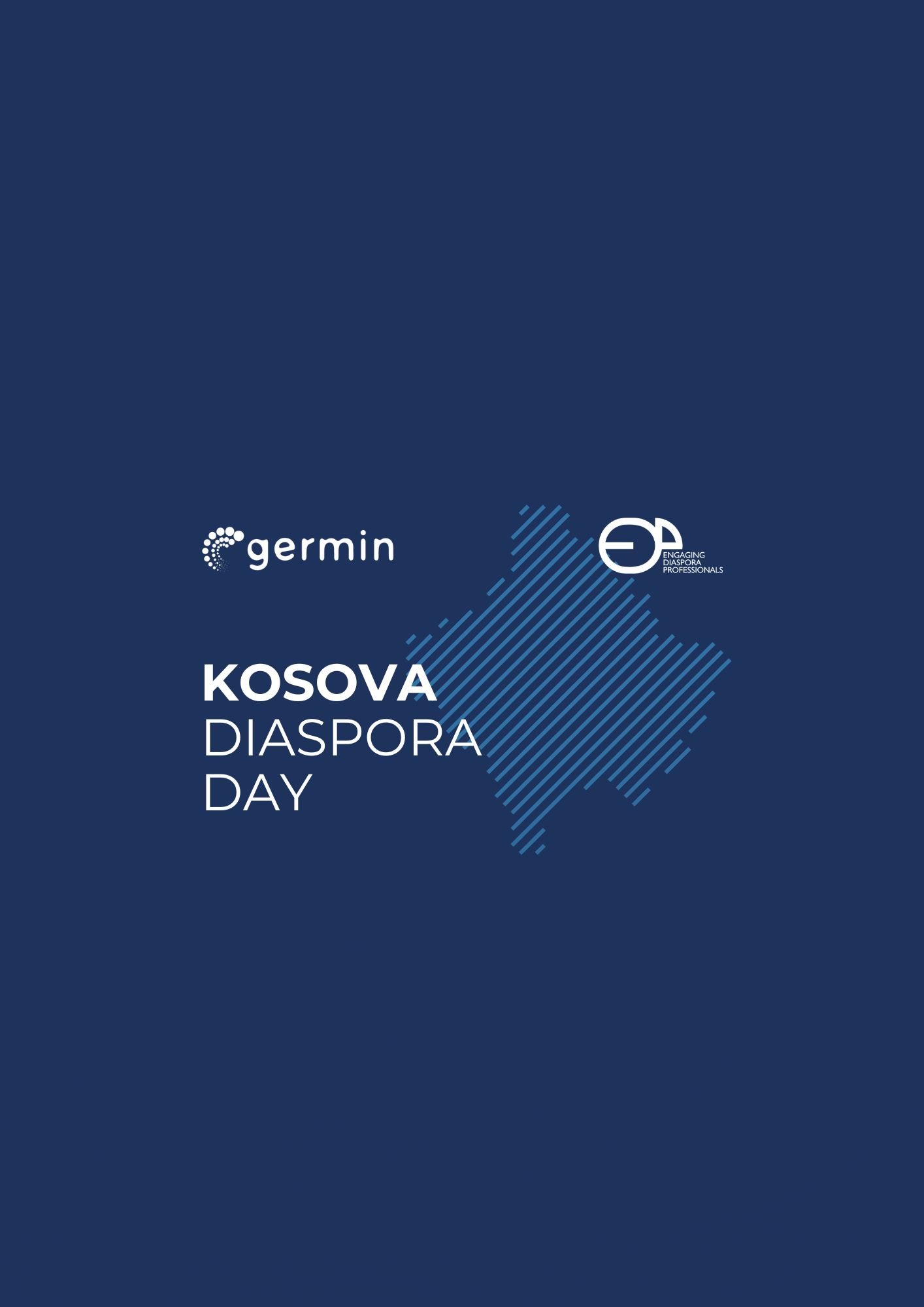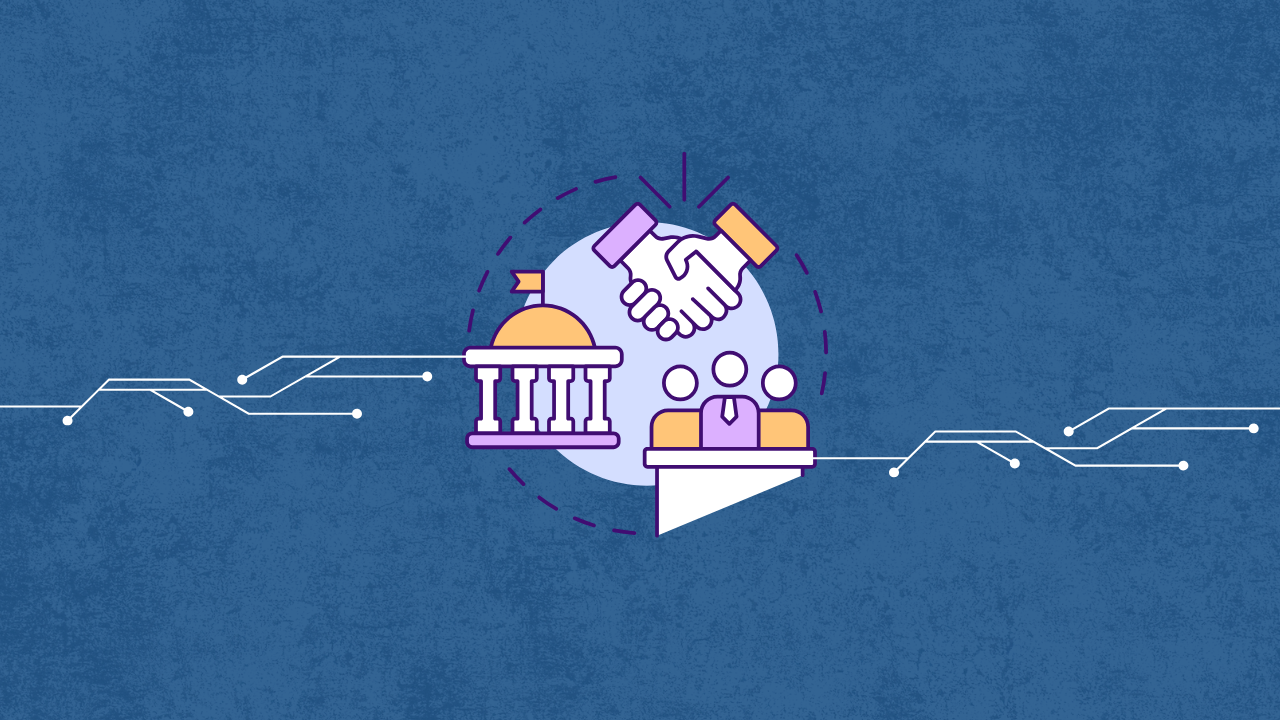Në diskursin qytetar shqiptar, një ndër pikat që përmendet më së shpeshti është potenciali i rinisë dhe angazhimi i tyre për të ardhmen e vendit. Përderisa ka miliona shqiptarë që jetojnë në diasporë, e një numër i madh i të rinjëve që vazhdojnë të dalin, është vështirë të shihet se si ai potencial mund të konkretizohet dhe aktualizohet. Sidoqoftë, eksperienca dhe ekspertiza e GERMIN, organizatë që punon ngushtë me diasporën shqiptare anembanë botës, tregon se këta të rinjë kanë dëshirë e vullnet të vazhdueshëm për të kontribuar. Andaj, si mund të bëhet lidhja e angazhimi i të rinjëve nga diaspora me vendet amë?
Kjo ishte pikerisht një ndër temat e diskutimit të organizuar në kuadër të konferencës DiasporaFlet 2020 nga OJQ ‘GERMIN’, me panelistë Mentor Dida (Ekspert i Inovacionit Social), Ilira Aliaj (Eksperte e Edukimit dhe Shkëmbimit Rinor), Emin Tahiri (Anëtar, “Diaspora për Shqipërinë e Lirë”), Daniela Muhaj (Studiuese, Harvard University), dhe Enxhi Popa (Financat e Produkteve, Google), dhe moderuar nga Çlirim Sheremeti (Themelues dhe CEO, 4-H Kosova).
Për hir të thjeshtësisë, opinionet dhe përfundimet e nxjerrura nga diskutimi janë grupuar më poshtë në 3 kategori: institucionet dhe organizatat, ekonomia, dhe individi e familja. Secila prej këtyre kategorive përfshin sugjerime dhe hapa konkret që mund të ndërmirren nga këto grupe për rritjen e angazhimit të të rinjëve me vendet amë.
Institucionet dhe organizatat
Roli i institucioneve shtetërore dhe shoqërisë civile në këtë diskutim është i pamohueshëm. Konkretisht për ato se çka mund të ndërmirren në vendin amë, panelistët kishin disa sugjerime.
Në mënyrë që të ndodh rikthimi dhee angazhimi i këtyre të rinjëve në një mënyrë të qëndrueshme, ajo duhet të jetë organike, dhe sipas znj. Muhaj nuk mund të varet plotësisht mbi ndjenjën kombëtare dhe idealizmin por duhet të ketë incentiva dhe të përdoren forcat e tregut. Ajo theksoi se një pikë kritike në realizimin e këtij bashkëpunimi është informacioni i duhur: a kanë informacione akterët lokal për bashkëpunime, apo të rinjtë për mundësitë që ekzistojnë në vendet amë?
Zt. Dida pajtohet me këtë pikë, ku edhe ai vetë kur është kthyer në Kosovë ka përjetuar këtë problem të mungesës së informacionit për angazhim dhe kontribut, ku sugjeron të krijohet një pikë qendrore informacioni për mundësitë e angazhimit.
Një zgjidhje potenciale për këtë aspekt mund të jetë sugjerimi i znj. Aliaj, që Ministritë e Diasporës në Shqipëri e Kosovë të kenë departamente përkatëse që merren me angazhimin dhe zhvillimin e njerëzve të rinj. Ajo poashtu theksoi se Ministria e Diasporës duhet të jetë e qartë se kënd e targeton me politikat dhe punën e saj, pasi që ata kryesisht punojnë me imigrantë më të vjetër të brezit të parë, ndërsa jo aq shumë me të rinjtë e brezit të dytë e tretë, të cilët janë lindur e rritur plotësisht në diasporë dhe nuk kanë aq lidhje emocionale me vendin amë.
Institucioni tjetër të cilin znj. Aliaj thotë duhet të rritë angazhimin janë ambasadat, të cilat nuk duhet të shërbejnë vetëm për viza dhe misione diplomatike, mirëpo janë të pozicionuar asisoj që mund të krijojnë një urë të shkëlqyeshme bashkëpunimi, pasi që kemi shumë artistë e sportistë në diasporë të cilët mund të promovohen ndërmjet angazhimit të ambasadave.
Ambasadat po ashtu mund të shërbejnë si mjet për promovimin e një aspekti të theksuar nga zt. Dida: faktin se kemi një tendencë që si popull të shfaqim punën e keqe e të portretizohemi me aspekte negative. Ndërsa nëse fillojmë të promovojmë më shumë aspektet pozitive dhe të “ribrendojmë” konceptin e “shqiptarit”, mund të rezultojmë edhe në rritjen e optimizmit dhe krenarisë së të rinjëve rreth vendit të tyre.
Ndërsa konkretisht për diasporë, Znj. Popa theksoi se organizatat e grupet që mbajnë ngjarje kulturore luajnë një rol tejet të madh, pasi që krijojnë një ndjenjë të madhe krenarie dhe përkatësie ndaj vendit amë, ku ka shumë të rinjë në diasporë të cilët për herë të parë mund të ekspozohen dhe të zbulojnë vlerësimin e tyre ndaj kulturës shqiptare ndërmjet këtyre organizatave.
Ekonomia
Sa i përket ndikimit ekonomik të mungesës së bashkëpunimit, znj. Muhaj theksoi se ekziston humbje e dyfishtë. Humbja e parë është ajo të cilën veçse e njohim: brain-drain apo ikja e trurit. Humbja e dytë është tek ata të rinjë të cilët janë larguar dhe janë duke studiuar apo kërkuar punë në diasporë, dhe ata jo vetëm se nuk dërgojnë remitanca, mirëpo iu nevojitet ndihmë financiare nga vetë familja në vendin amë. Për shkak se këta të rinjë janë rritur në vendin amë dhe pastaj ata ikin, duke e kombinuar këtë me mungesën e përkatësisë dhe lidhjes emocionale, kjo rezulton në humbje të investimit për vendin amë.
Znj. Muhaj poashtu theksoi një tjetër pikë tejet interesante nga aspekti ekonomik: “productivity knowhow”, apo aftësitë dhe njohuritë që i duhen një ekonomie për tu zhvilluar. Zhvillimi i productivity knowhow mund të ndodh në dy forma: ndërmjet investimeve të jashtme të natyrës “efficiency-seeking”, apo në rastet kur profesionistë nga jashtë vijnë në Shqipëri e Kosovë dhe sjellin njohuri, inovacion, e kreativitet me vete.
Është pikërisht kjo forma e dytë ku ka potencial të angazhimit të të rinjëve nga diaspora me vendin amë. Sipas znj. Muhaj, të rinjtë nuk duhet të perceptohen si aset i humbur, mirëpo si “rezervuar i trurit” që vazhdon të pasurohet, dhe domosdoshmërisht nevojiten mekanizma e incentiva për t’i angazhuar ata përsëri në vendin amë. Zt. Tahiri, me eksperiencën e tij në angazhimin ndërkombëtar rinor, pajtohet me vlerësimin si “rezervuar i trurit”, pasi përmend se këta të rinj mund të shërbejnë si shumë më shumë sesa vetëm ofrues të remitancave apo promovues të aspekteve natyrore të vendit amë; ata mund të jenë faktor që luajnë rol në politikat dhe vendimmarrjet e vendit.
Ndërsa Zt. Dida përmendi se, për të rinjtë e diasporës, gjatë kohës që ata verën e shfrytëzojnë në vendet amë me familje, moshatarët e tyre angazhohen në programe jashtëshkollore e kampe verore të ndryshme, dhe si rezultat të rinjtë shqiptarë mbesin mbrapa në zhvillimin e tyre. Ai përmend se një prej mënyrave për nxitje të angazhimit mund të jetë ofrimi i këtyre mundësive profesionale për të rinjtë në vendet amë, ku njëkohësisht edhe kontribuojnë në zhvillimin e vendit si rezultat i punës së tyre.
Individi dhe Familja
Pa marrë parasysh nismat e akterëve tjerë, në fund të fundit, ndryshimi i vërtetë fillon nga vetvetja dhe hapat e parë i marrim nga familja.
Duke u nisur fillimisht nga identiteti, znj. Popa, e cila ka kaluar gjysmën e jetës në Shqipëri e gjysmën tjetër në Amerikë dhe vetë është sfiduar me “identitetin e dyfishtë”, thotë se pika e cila e bëri atë të ndihej plotësisht e rehatshme me veten ishte kur ajo e pranoi se nuk është vetëm Shqiptare apo Amerikane, por Shqiptaro-Amerikane, dhe se i përket të dyja këtyre botave.
Ndërsa znj. Aliaj, për individët dhe familjet, sugjeron udhëtime të llojit “birthright trips”, pra vizita në vendin amë për eksplorimin e historisë dhe kulturës. Ky udhëtim do i’u ndihmonte të rinjëve dhe familjeve të reparojnë dhe forcojnë marrëdhëniet e ndjesinë që e kanë për vendin amë.
E sa i përket familjes, zt. Tahiri tha se tek ata të rinjë që kanë lindur në diasporë apo kanë migruar si të vegjël, rolin kryesorë e luan familja, pasi që të rinjtë ndikohen direkt nga vetë perspektiva e prindërve të tyre rreth vendit amë, perspektivë e cila pastaj ndikon në vullnetin e tyre për t’u identifikuar me këtë identitet dhe kulturë. Sipas tij, është përgjegjësi e familjes që të rinjtë t’i edukojnë rreth vendit amë dhe t’i mbajnë të lidhur me kulturën.
Si fjalë e fundit, dua ta përmend se edhe pse kemi tendencë të ankohemi e të listojmë problemet, panelistët e këtij diskutimi na shfaqën potencialin e diasporës tonë të re dhe na ofruan mundësi konkrete për angazhim. I ftoj të gjithë ata që po e lexoni këtë artikull, që të kontaktoni organizatat, institucionet, e kompanitë që punojnë me diasporë, dhe ata individë që i njihni e jetojnë në diasporë, dhe ta ndani artikullin me ta e të shikoni se si mund të angazhoheni për rininë tonë.
Nuk mund të vazhdojmë të diskutojmë se faji i kujt është pse gjërat nuk po funksionojnë si duhet. Koha ka ardhur që të ndalojmë viktimizimin dhe të marrim në dorën tonë përgjegjësinë që e kemi për ndryshim – ne nuk mund të kontrollojmë tjerët, por mund të kontrollojmë veprimet tona. Nëse ne jemi e ardhmja, atëherë e ardhmja është tani!
“Çlirim Sheremeti është Themeluesi dhe Drejtori Ekzekutiv i 4-H Kosova, një organizatë me fokus për zhvillimin e të rinjve e cila është anëtare e rrjetit global të zhvillimit të organizatave 4-H të të rinjve, që shtrihet në 70 vende me më shumë se 7 milion anëtarë. Z. Sheremeti ka qenë i angazhuar në zhvillimin e të rinjve dhe arsimin joformal në 7 vitet e fundit, pasi ka menaxhuar, mbikëqyrur dhe këshilluar grante, projekte dhe nisma të shumta në 5 vitet e fundit. Ai ka mbajtur poste drejtuese në organizata të vlerësuara, siç është Presidenti i Këshillit Rinor të Ambasadës së SHBA në Kosovë, dhe riaktivizoi dhe menaxhoi Rotaract Club Prishtina në 2018. Z. Sheremeti gjithashtu ka përfaqësuar të rinjtë kosovarë në ngjarje të shumta ndërkombëtare në Zvicër, Hungari, Serbi, Finlandë, Kanada dhe Shtetet e Bashkuara, dhe ka folur si folës kryesor në drekën e adoleshentëve Ohio 4-H në Columbus, Ohio në 2018 para 700 të rinjve, drejtuesve të komunitetit dhe profesionistëve të zhvillimit të të rinjve. Kontributet e tij në zhvillimin e komunitetit dhe fuqizimin e të rinjve janë njohur në nivel lokal dhe ndërkombëtar. Për më tepër, Z. Sheremeti angazhohet vazhdimisht si këshilltar për menaxhmentin, udhëheqjen dhe përgjegjësinë sociale në projekte afatshkurtra dhe me ndikim të lartë.”



